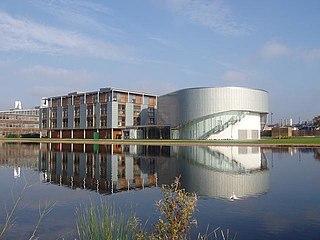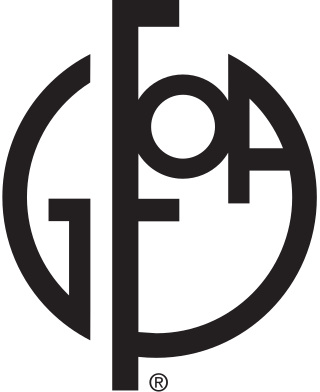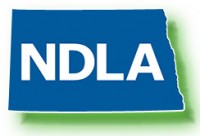
Nottingham University Business School (NUBS) is the business school of the University of Nottingham, United Kingdom situated on the university's Jubilee Campus, close to Nottingham city centre.

The Institute of Mathematics and its Applications (IMA) is the UK's chartered professional body for mathematicians and one of the UK's learned societies for mathematics.
The Norwegian School of Economics or NHH is a business school situated in Bergen, Norway. It was founded in 1936 as Norway's first business school and is the leading teaching and research institution in Norway for the fields of management and business administration.

The Institute of Management Accountants (IMA), formerly known as the National Association of Cost Accountants (NACA), is a professional organization of accountants.

Beta Alpha Psi (ΒΑΨ) is an international honor society for accounting, finance and information systems students attending universities accredited by the Association to Advance Collegiate Schools of Business or the European Quality Improvement System.

Cambridge Judge Business School is the business school of the University of Cambridge. The School is a provider of management education. It is named after Sir Paul Judge, a founding benefactor of the school.
The School of Accounting and Finance (SAF) at University of Waterloo is a professional school within the Faculty of Arts. The School was established in 1980 under the name 'School of Accountancy'. Its name was changed in 2008 to better reflect its program offering. Today, more than 1,600 students are enrolled in the School's programs. In September 2009, a new 52,000 square feet (5,000 m2) building was officially opened to house the School.

The Government Finance Officers Association is a professional association of approximately 19,000 state, provincial, and local government finance officers in the United States and Canada. GFOA is headquartered in downtown Chicago.

Computer Society of India is a body of computer professionals in India. It was started on 6 March 1965 by a few computer professionals and has now grown to be the national body representing computer professionals. It has 72 chapters across India, 511 student branches, and 100,000 members.

The American Accounting Association (AAA) promotes accounting education, research and practice. The Association mission is to further the discipline and profession of accounting through education, research and service.
The Academy of Management is a professional association for scholars of management and organizations that was established in 1936. It publishes several academic journals, organizes conferences, and provides others forums for management professors and managers to communicate research and ideas.
The British Society for Research into Learning Mathematics is a United Kingdom association for people interested in research in mathematics education.
Alexander Ljungqvist is a Swedish economist, educator, scholar, writer, and speaker. He is a professor of finance at the Stockholm School of Economics, where he is the inaugural holder of the Stefan Persson Family Chair in Entrepreneurial Finance. His areas of expertise include corporate finance, investment banking, initial public offerings, entrepreneurial finance, private equity, venture capital, corporate governance, and asset pricing. Professor Ljungqvist teaches Master's, MBA, and executive courses in private equity and venture capital and a PhD course in corporate finance.
Accounting research examines how accounting is used by individuals, organizations and government as well as the consequences that these practices have. Starting from the assumption that accounting both measures and makes visible certain economic events, accounting research has studied the roles of accounting in organizations and society and the consequences that these practices have for individuals, organizations, governments and capital markets. It encompasses a broad range of topics including financial accounting research, management accounting research, auditing research, capital market research, accountability research, social responsibility research and taxation research.

The British Academy of Management (BAM), founded in 1986, is a learned society dedicated to advancing the academic discipline of management in the United Kingdom. It is a member of the Academy of Social Sciences. The academy runs two peer-reviewed academic journals: the British Journal of Management and the International Journal of Management Reviews. The headquarters of the British Academy of Management is in London, United Kingdom.

The North Dakota Library Association (NDLA) is a professional association for librarians, library staff, and library supporters that represent school, public, academic, and special libraries located in North Dakota, United States. "The purpose of this organization is to exercise professional leadership and to promote library services and librarianship." The North Dakota Library Association was formed on January 18, 1906. The association has humble beginnings – at the 1909 conference, there was only 18 members. There are currently over 300 NDLA members.
Chris Brooks is Professor of Finance in the School of Accounting and Finance at the University of Bristol, United Kingdom.
Clive R. Emmanuel was a British academic, who held the Ernst & Young Chair of Accountancy at the University of Glasgow from 1987 to 2011.
Accounting and Finance Association of Australia and New Zealand (AFAANZ) is a professional not-for-profit association founded in 1960 with the current name established in 2002 as an amalgamation of the Accounting Association of Australia and New Zealand (AAANZ) and the Australian Association of University Teachers in Accounting (AAUTA). The organization represents the interests of people in Australia and New Zealand who are involved in education of accounting and finance.
Niamh Máire Brennan is the Michael MacCormac Professor of Management at University College Dublin (UCD), Ireland.










